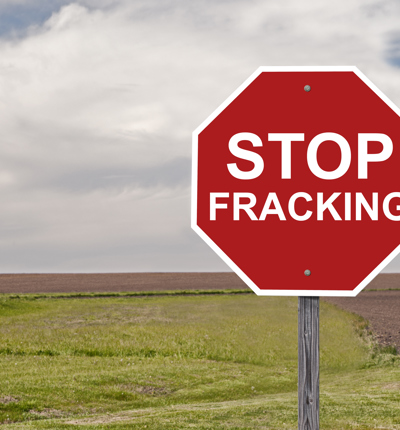
Anti-fracking campaigners win appeal on the right to protest
The Court of Appeal has today granted the appeal brought against the anti-fracking protest injunctions sought by INEOS, ruling that two of the remaining four interim injunctions upheld by the High Court are unlawful, and that the two others need to be reconsidered by the High Court.
Posted on 03 April 2019
In July 2017, fracking company INEOS was granted an unprecedented injunction against “persons unknown” in relation to eight sites across England. The injunctions prevented a number of protest-related activities relating to the sites, including trespass, interfering with access to the sites and ‘obstructing, impeding or interfering with the lawful activities’ of INEOS staff and their contractors. It contained the first ever court mandated blanket ban on slow-walking, which has long been a legitimate and legal form of peaceful protest.
Environmental activist Joseph Boyd, represented by law firm Leigh Day, had challenged the injunctions in the High Court, alongside fellow campaigner, Joseph Corré, in November 2017, but had been successful only in relation to one injunction. Both men appealed to the Court of Appeal arguing that the remaining four injunctions granted to INEOS constituted a threat to free speech and to the right to peaceful protest. Today, the Court of Appeal ruled in their favour.
The Court found that the trespass injunctions failed to include an appropriate temporal limitation. It remitted those injunctions to the High Court for reconsideration, having accepted the arguments advanced on behalf of Mr Boyd that the High Court had failed properly to consider the test for the granting of interim injunctions in cases restricting the right to free speech. The Court struck out the other injunctions entirely, holding that the High Court had failed to properly balance the protesters’ right to protest against INEOS’ commercial interests. In handing down the lead judgement today, Lord Justice Longmore underscored the potentially chilling effects of the injunctions on lawful protest activity. He said: “The citizen’s right of protest is not to be diminished by advance fear of committal except in the clearest of cases.” [para 42]
In relation to the blanket prohibition on slow walking in particular Lord Justice Longmore said: “The concept of slow walking in front of vehicles or, more generally, obstructing the highway may not result in any damage to the claimants at all” . He questioned the lack of precision in the prohibition of slow walking, questioning “how slow is slow? Any speed slower than a normal walking speed of two miles per hour? One does not know”, concluding that “A person faced with such an injunction may well be chilled into not obstructing the highway at all.” [para 40]
Rosa Curling, solicitor at law firm Leigh Day, said:
"Our client is delighted with his victory in the Court of Appeal today. The pre-emptive injunctions ordered by the High Court were unprecedented in their scope and undermined the protections of civil liberties and human rights in the UK. The rights to freedom of expression and peaceful protest are crucial in any democracy. That includes unruly, potentially disruptive protests. There can be no proper basis for companies with deep pockets to prohibit lawful protest before it has even occurred, and the Court today agreed.”

